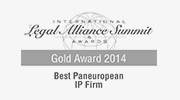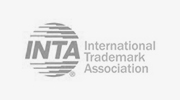18 December 2020
The Spanish legal tradition has historically relegated business secrets to a poorly defined and almost undeveloped legal concept, which reluctantly made use of the coverage provided by scattered rules among the Civil and Criminal Codes and the Unfair Competition Act, and often the very contractual clauses that companies signed with employees, suppliers and customers.
This ended not so long ago thanks to the usual and timely European intervention, which through its Directive 2016/943 of 2016 and its subsequent transposition by the Spanish Law 1/2019, built a regulatory framework for business secrets for the peace of mind of more than one businessman. Although we have been missing a regulation like this for a long time, we cannot be too hard on our beloved Europe, as other advanced jurisdictions such as the United States have not traditionally enjoyed particularly generous legal coverage for this fundamental figure either, being trade secrets subject to mere state regulation. Although the Uniform Trade Secrets Act of 1979 established some minimum harmonising bases, it was not until 2016 when the Defend Trade Secrets Act was finally enacted, that legal means to act against the illegal obtaining and use of trade secrets were first envisaged. So, we are not doing so badly after all.
Business secrets may have taken so long to benefit from a regulation protecting them due to their eminently secret nature, which is not very friendly to the publicity given by public titles of patents and trademarks or legal proceedings that, due to their own characteristics, make available to the parties and the public more than the holder of a business secret would like to share with competitors. Despite this, protection was insufficient and actions for compensation against infringers too difficult and impractical. Regulation became necessary and desirable.
Without going into the detailed analysis of Law 1/2019 that other colleagues have previously made we will comment on the advantages and disadvantages of the business secret compared to other figures of IP such as the patent or the utility model.
Firstly, it is important to note that protection offered by trade secrets is of indefinite duration, which potentially makes it more attractive than the 20 years a patent offers, the 10 years of the utility model or even the 70 years of the creative work (often applicable in software and IT). This potential eternity vanishes like a sugar cube as soon as the secret is out, which should prevent us from being over-optimistic about this alleged advantage.
Secondly, trade secrets theoretically do not involve costs of obtaining a title of protection, especially when the territorial scope is greater than a single jurisdiction. We must stress the theoretical nature of this argument, since it ignores the significant business costs that may arise from preserving a secret in order to be able to activate it against a third party. If in doubt, ask your finance department how many costs your company’s compliance department has (to which one could add many others related to IT systems and HR management, for example).
Thirdly, and not least, the much more flexible characteristics of business secrecy should be observed in relation to the formal, legal and technical requirements for obtaining a patent or utility model. Let us make the concept of “industrial application” more flexible, relax the arduous concept of “novelty” and free ourselves, at last, from the slavish requirement of “inventive activity”. Let us protect our technological development, our IT process algorithms, our database architecture, our customers and suppliers names, our market strategies, etc.
In contrast to these arguments, however, we must analyse the disadvantages of business secrecy compared to other legal figures. Let us return to the first advantage mentioned above: the undetermined duration. While the patent is enforceable against almost all third parties who manufacture, use or market the patented object throughout its term, secrets lose all their force since someone, either legally or illegally, makes them public. Although we will generally face the second case, there are cases such as “reverse engineering”, a legal technique which would be otherwise attackable based on patent protection. Therefore, protection afforded by secrets is hardly comparable to that of a classic patent.
It is logical to deduce that bringing legal actions on the basis of more or less diffuse business secrets without a valid public title is more costly and laborious than doing the same with patents or utility models granted by public offices, which validity bears a much stronger presumption. Due to the youth of the Law, we do not have relevant case law in this area from which to draw conclusions yet, although it has already begun to be a source of inspiration in rulings such as SAP MU 1541/2019 of the Murcia Provincial Court or SAP B 10731/2019 of the Barcelona Provincial Court where procedural practices have already been adopted increasing precautionary measures effectiveness and the confidential treatment of the subject matter.
As regards licences and sales, and even though Law 1/2019 provides for and regulates them relatively satisfactorily, the conclusion and granting of such licences and sales is still considerably more complex than that of patents.
In view of the above, we must conclude that business secrets, beyond being substitutes for some patents and models, offer a good opportunity for complementary protection, protecting knowledge, processes and other intangible capital. When the subject matter of protection does not meet patentability requirements; or it is reasonable to expect that it can be kept confidential for a period exceeding 20 years; or it does not have sufficient business value to merit the costs of a patent, business secret gains strength as a strategic option.
IP professionals must welcome the Business Secrets Law 1/2019 approval and, taking advantage of the protection and legal security it offers, include this figure among the options to be considered when advising our clients, based on their needs and strategies, about the best strategy to protect their intangible assets.




























Comentarios
No Comments